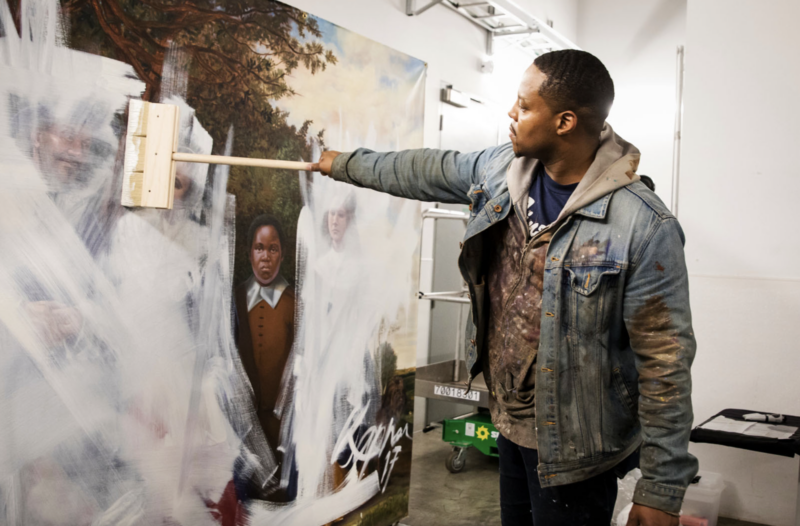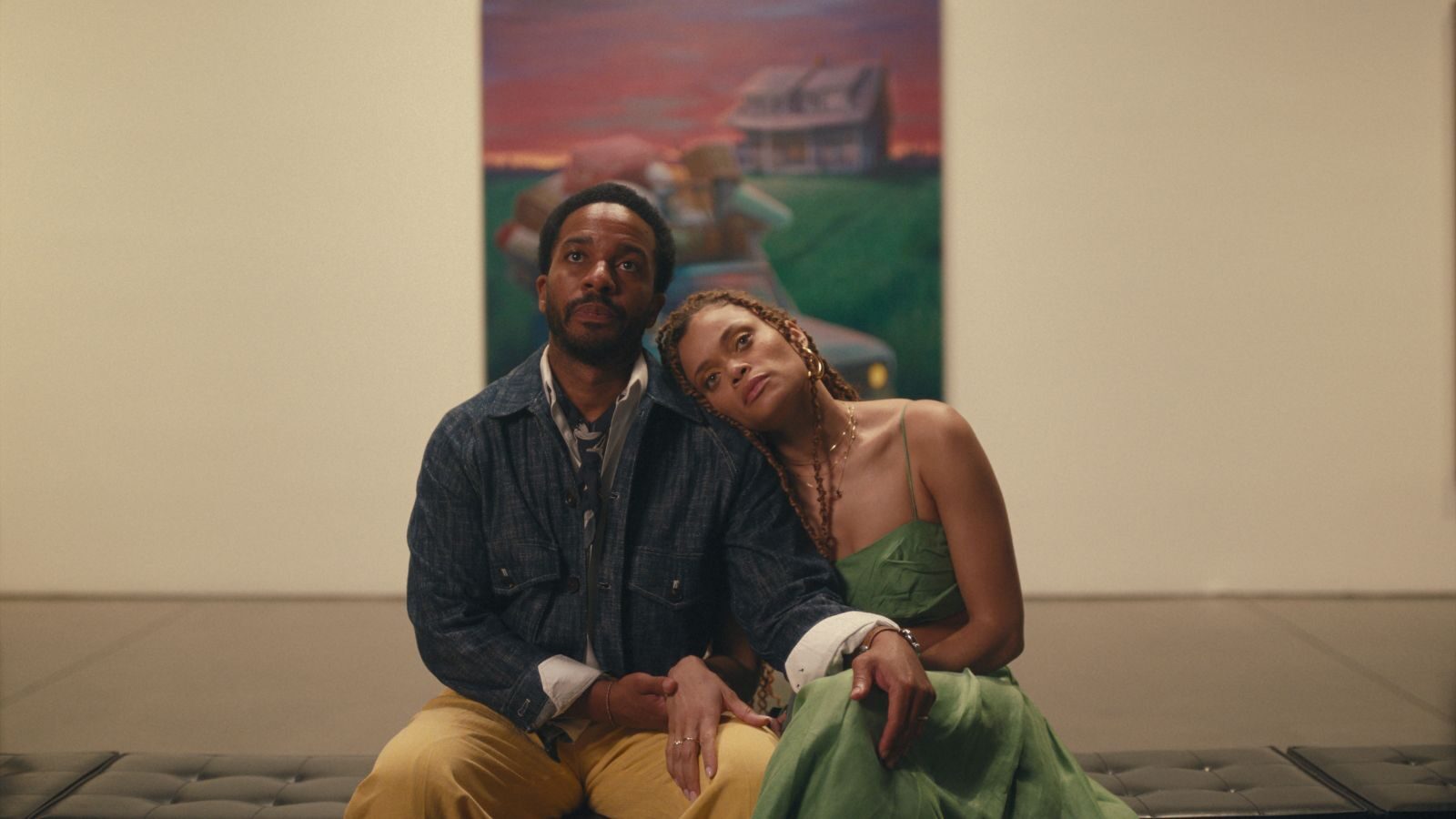Exploring bold new works from filmmakers around the world, the 53rd New Directors/New Films, our annual festival co-presented with The Museum of Modern Art, officially kicks off on April 3. Ahead of the festival, get to know the filmmakers who speak to the present and anticipate the future of cinema.
Titus Kaphar shares filmmaking inspiration, the convergence of his two mediums, and how his experience with addiction informed the creation of Exhibiting Forgiveness.
What made you first want to be a director?
I’ve been making art for a long time and a lot of that art is not accessible to my family and the people it’s about. A movie is something anyone can watch. I wanted to make this film so my family and community could experience and share my art.
Was there a film or director you were inspired by or continue to be inspired by?
Drive My Car was a recent film that really influenced my approach to making Exhibiting Forgiveness.
In your own words, tell us about your film. What should audiences know?

Exhibiting Forgiveness is a father/son story that points at hope without diminishing the challenges of forgiveness. It is for the children and loved ones who suffer abuse at the hands of those who are charged to protect them. When I was fifteen, I left my father’s house after watching him commit a heinous act of violence. His addiction to crack cocaine had been a dark cloud over my adolescence but this was the first time I saw his disease drive him to physically hurt someone other than himself. At that moment, I told him that I never wanted to see him again, and our paths diverged.
Twenty years later, I brought my wife and two sons back to my hometown for our biannual visit to grandma’s house. As we approached the front steps, I was shocked to see my father sitting on the porch. By this time I had graduated from Yale, built a successful career as an artist, and was part of a loving marriage and a happy family. Having my father as a part of my life was not even a distant desire. My grandmother, a woman with whom disagreeing is not an option, insisted that I speak to him. It seemed I had no choice, but if I had to talk to my father, I was going to record it. In retrospect, I think I was looking for his confession. Something that would justify my unwillingness to forgive.
I showed up to my father’s house the next morning with a camera. The resulting footage became a short documentary called “The Jerome Project.” After completing it, I realized that there was so much backstory unaddressed, a narrative version of this film would be the only way to show and tell the whole truth.
We are delivered into this script through the eyes of Tarrell, a painter whose artistic vision colors every scene. Physical paintings exist as interstitial visions illuminating the creative process as a vehicle for grappling with his past trauma. This story acknowledges that the damage of addiction can be irreparable, and even in the face of forgiveness, forgetting is often impossible— but, under the right circumstances, the creative process itself can offer a space for healing.
What does it mean to you to show your film at New Directors/New Films?
I couldn’t be more excited for the two art forms in my life to merge. New Directors/New Films is the convergence of film and art. It is always a privilege to hold the audience’s attention for a few hours.
What was the biggest lesson you learned during the making of your film?
When I paint, I am all by myself so I really didn’t expect to enjoy the collaborative process as much as I did. It ended up being one of my favorite parts of filmmaking. Having a team help me execute the idea that I built in solitude was a true honor.
What is the best piece of advice you’ve ever been given?
Be an artist.
What else do you enjoy doing outside of filmmaking?
Painting and being with my family. Also my cold plunge 🙂
What’s a film you saw recently that you enjoyed?
Nine Days is a film I can’t stop talking about.
One of the contemporary art world’s most important painters, Titus Kaphar creates powerful work that is multidisciplinary in nature and profound in historical meaning, often incorporating multiple layers and sculptural dimensions to his canvases. Kaphar brings the same sense of profoundly felt dynamism to his startlingly accomplished cinematic debut, Exhibiting Forgiveness, a wrenching work of emotional depth and visual flair starring the magnificent André Holland in one of the actor’s greatest screen roles so far. Painter Tarrell Rodin (Holland) is a loving and grounded husband to singer Aisha (Andra Day) and father to young Jermaine (Daniel Berrier), but he’s violently haunted by nightmares of his childhood. While preparing for a new gallery show, Tarrell finds his life upended by the sudden return of his father, La’Ron (John Earl Jelks). His mother, Joyce (Aunjanue Ellis-Taylor), has forgiven La’Ron for the abuse and addiction of their family’s troubled past, but Tarrell cannot bring himself to do the same. While working on his large-scale canvases, Tarrell journeys to his past, wondering if he can alter the pain of his present. Kaphar’s film—as provocative in its depiction of unresolvable familial crises as it is about the meaning and co-opting of Black voices in the contemporary art scene—wrestles with difficult, personal questions without settling on easy answers.
Titus Kaphar’s Exhibiting Forgiveness screens on April 5 & April 6 with a Q&A with Titus Kaphar. New Directors/New Films takes place April 3-April 14. Explore the lineup and get tickets.



